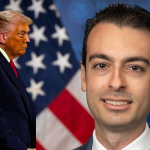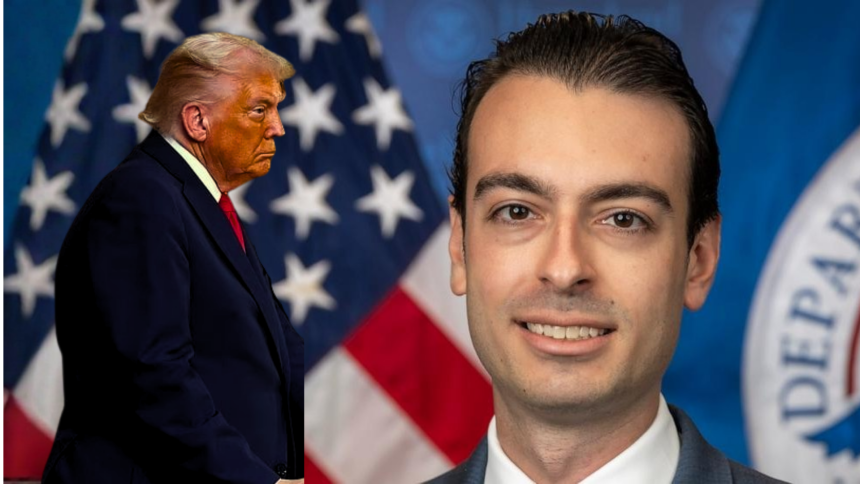A political firestorm erupted in Washington this week after leaked text messages revealed that Paul Ingrassia, President Donald Trump’s nominee to lead the Office of Special Counsel, made openly racist and pro-Nazi remarks. The messages, first obtained by POLITICO, show Ingrassia allegedly boasting about having a “Nazi streak” and asserting that “white men” should dominate positions of leadership. The scandal has sparked bipartisan condemnation and raised urgent questions about the vetting process for one of the federal government’s most sensitive civil rights watchdog roles.
The Alarming Content of the Leak
In the text exchanges, dated between 2022 and 2024, Ingrassia reportedly mocked Martin Luther King Jr. Day, calling it “a holiday that belongs in the seventh circle of hell.” He also denigrated Black History Month, derided Juneteenth, and drew comparisons between Dr. King and George Floyd in a way that many have described as deeply offensive.
According to the report, when fellow Republicans in the group chat confronted Ingrassia about the comments, he refused to retract them. Instead, he doubled down, writing that “we should celebrate white men and Western civilization.”
These revelations are especially alarming given that the Office of Special Counsel is specifically tasked with protecting federal employees from discrimination and retaliation, enforcing whistleblower protections, and upholding government accountability.
Trump’s Silence Draws Scrutiny
President Trump has not publicly commented on the scandal, a silence that many Democrats and civil rights advocates argue speaks volumes. Senate Democrats have demanded that the nomination be withdrawn entirely, while some moderate Republicans have expressed discomfort with Ingrassia’s remarks but stopped short of disavowing the nominee outright.
Sen. Raphael Warnock called the nomination “a slap in the face to every American who believes in equality.” Civil rights organizations such as the NAACP, the Anti-Defamation League, and Human Rights First have all urged the Senate to reject the appointment, warning that confirming Ingrassia would embolden extremists within government ranks.
Ingrassia Responds Through Attorney
Ingrassia’s attorney dismissed the texts as “self-deprecating humor” taken out of context, adding that the nominee “has incredible support from the Jewish community.” Critics, however, called the explanation insulting and tone-deaf, arguing that such rhetoric cannot be brushed off as a joke.
Former federal prosecutor Glenn Kirschner told CNN that “using hate speech under the guise of humor is still hate speech,” warning that “placing someone with these views in a role that polices discrimination is dangerous.”
Public Reaction and Political Fallout
The scandal has quickly taken over political headlines and social media feeds, with hashtags like #Rejectgrassia and #HateHasNoHatred trending nationwide. Activists have organized protests outside Senate offices in Washington, D.C., and several major cities.
Civil rights expert Maya Wiley said the controversy exposes “a broader normalization of white supremacist rhetoric” within mainstream politics. She added, “When people with extremist views start getting nominated to watchdog agencies, democracy itself is at risk.”
Meanwhile, Republican strategists are reportedly urging the White House to cut ties with Ingrassia to prevent long-term damage heading into the 2026 midterm elections. However, according to an unnamed senior aide, the administration remains “committed” to pushing the nomination forward.
The Office of Special Counsel’s Mission Undermined
If confirmed, Paul Ingrassia would helm an agency charged with protecting fairness and equality in federal workplaces — the very values his alleged statements appear to undermine. Analysts warn that such hypocrisy could erode public trust and discourage whistleblowers from reporting misconduct.
Experts also note that this scandal could trigger broader scrutiny of the Trump administration’s appointment process. As watchdog groups point out, previous controversies involving extremist views among appointees have drawn international criticism and diplomatic embarrassment for the United States.
The Road Ahead
The Senate confirmation hearing is expected within weeks, but political pressure is mounting on lawmakers to reject the nomination. Advocacy groups have launched coordinated campaigns urging citizens to contact their senators and demand accountability.
As calls for withdrawal escalate, Ingrassia’s case has become a flashpoint in the national debate over racism, extremism, and the moral direction of the American government. Whether his nomination survives the uproar could set a precedent for how far political loyalty can stretch in the face of overt bigotry.
Read more on how political scandals affect federal hiring standards at BrandonBent.com. For a deeper analysis of white nationalist infiltration in U.S. politics, see this Reuters report.
Sources












